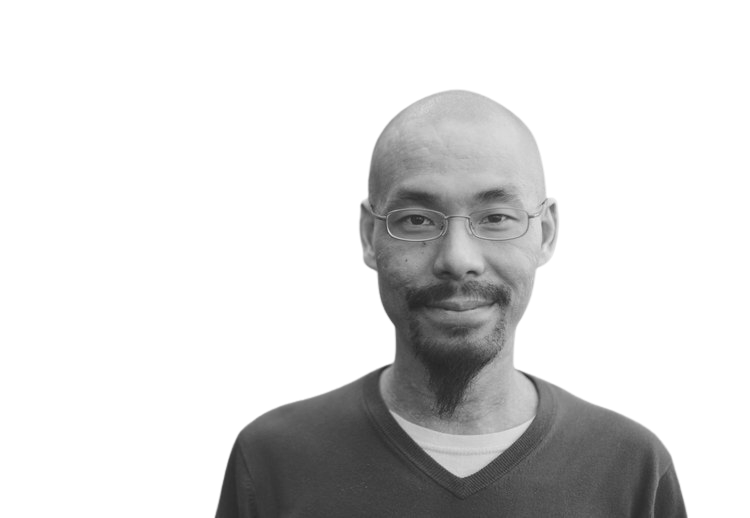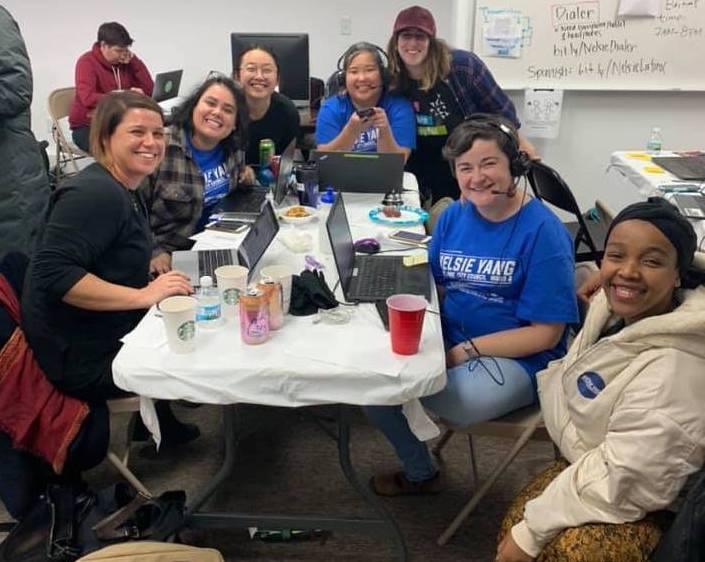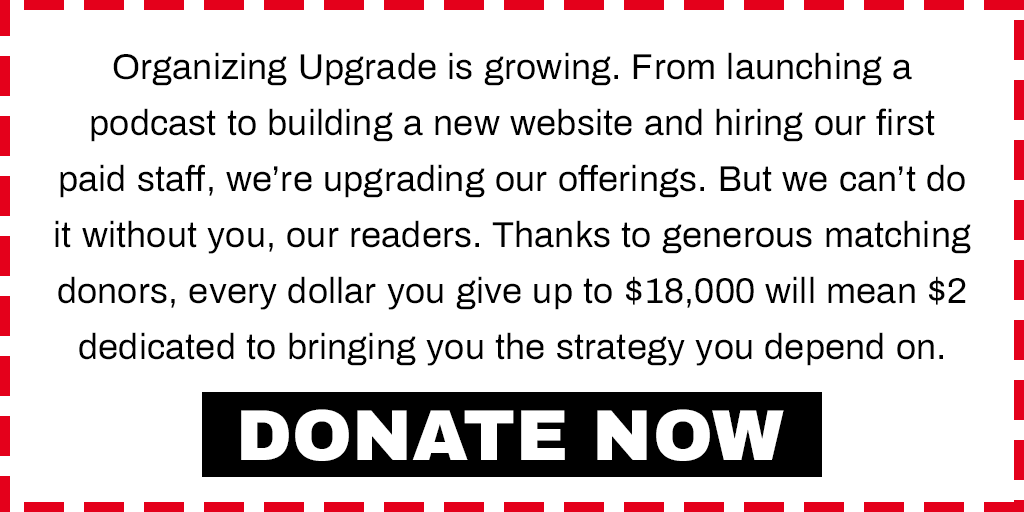This is the fourth installment of Organizing Upgrade’s new interview series, “Mapping the Moment.” We’ll be talking with activists and organizers about pressing issues and strategic questions that define the terrain our movements work in. To start, we asked people how they understand the Democratic Party at the moment. How do we understand the rifts in the party as a new economic policy direction emerges? How do we push moderate Dems and take advantage of openings for leftists and progressives – while fighting the Right at the same time? For TakeAction Minnesota Executive Director Elianne Farhat, the rifts in the party reflect the growing power of progressives and Leftists. In today’s politics, she says, we need a new definition of bipartisanship. “Our governing majority and coalition is not between Democrats and Republicans but among a multiracial working-class constituency that is electing people who represent them and advancing an agenda within the Democratic Party.”
We govern with a new coalition
Tobita Chow interviews Elianne Farhat
How do we understand the nature and importance of rifts and fault lines within the Democratic Coalition as neoliberalism declines and a potentially new consensus emerges?
Elianne Farhat: One way to understand what we’re seeing as divisions in the Democratic Party is the ascendant power of progressives and Left politicians within the party.
In Minnesota we’ve seen younger generations of electoral organizers, who got started in candidate campaigns in the state’s Democratic-Farmer-Labor (DFL) party, begin to move a strategy to get elected to party offices and take control of caucuses within the party. This strategy is creating more of a progressive force within the party.
Second, at the state level, for a long time organizers, advocates, and operators, believed in moving bipartisan strategies. That began to shift as the Republican Party moved farther to the right and took less interest in governance, and more interest in building their own political power to advance a very individualistic, anti-government, and nationalist agenda.
It has taken us time to reorient to the fact that we cannot win in that bipartisan way. We need to understand our politics in new frameworks. Our governing majority and coalition is not between Democrats and Republicans but among a multiracial working class constituency that is electing people who represent them and advancing an agenda, all within the Democratic Party.
What are some key fault lines that you’re seeing?
EF: A new class of Democratic-Farmer-Labor party legislators was elected to the Minnesota House of Representatives in 2016. It was one of the most racially diverse classes to date at that point. That crew of elected officials created the People of Color and Indigenous (POCI) Caucus. Subsequent elections have grown that caucus, and they’ve learned how to be increasingly effective as a bloc within both the House and Senate. There have been important moments, especially in the last year, where the POCI Caucus have been able to flex their power around issues that are very important to Black, Indigenous and people of color but have been left off the table. That has included better representation at the University of Minnesota Board of Regents and blocking spending that the governor wanted to make on law enforcement.
Another place we see some fault lines within the Democratic Party is the tension between long-term labor union support and urgent needs to take action around climate change. We’re seeing real tension inside the party around building trades unions supporting the Line 3 Pipeline and climate champions and progressive left elected officials not being willing to compromise the long-term ability to live on this planet for short-term job creation. In previous political moments we saw the Democratic Party make compromises and play into short-termism. Progressives with ascendant political power are not willing to play this game, and we reject the notion that it’s an either/or. We can act now to meet the urgent climate crisis, and do it in a way that sets up our economy across the state so people can live full productive lives and work union jobs into the future.
The other tension that I see within Democratic politics is with the consulting class and its orientation around running campaigns in a way that reduces our messages to the shortest soundbite designed to get an immediate reaction. Our electoral apparatus has been captured by consultants who are mostly in it to make a profit. That has done an incredible amount of harm to political discourse inside of our country.
Groups like TakeAction Minnesota that do relational deep canvassing and robust electoral work are pushing back on the story about why we lose that has been designed over time to keep us small and less powerful. For example, in this last election cycle, Democrats lost in some places that were unexpected. Democratic Party leaders and neoliberal talking heads immediately began blaming Defund and activists on the ground.
Because we’ve built power and influence within the Democratic Party, we can question that legitimately, and push for research and evaluation of whether that’s true. And we found in Minnesota that’s not true. The Defund message didn’t hurt support for Dems: it animated the Republican base, and it animated some of our base, with an important relationship between protests and increased turnout and wins. Our ability to confront those stories and lies and make different meaning out of the outcome is creating important tension with Democratic Party politics and creating space for us to campaign differently.
How do we push moderate Dems and take advantage of opportunities for the Left and progressives within the context of fighting the right?
EF: We have to do both, pushing moderate Dems and fighting the right. We are up against a growing white nationalist politic and organization on the right that is increasingly capturing, if it hasn’t already completely captured, the Republican Party. That is a threat to our day-to-day lives and to our democracy and our country. We need to take that seriously.
And the way we beat that is not by focusing on proving it wrong but by proving our vision right. By saying we can deliver a world where we care for everyone. We can deliver a world where people have a roof over their heads, and food on their plate, and their children are cared for and can play in green parks, and we enjoy the peace and security that is our birthright. Moderates and an illogical obsession with bipartisanship are the biggest obstacle to winning that. Particularly at the federal level.
We also have to take a really sober look at what is possible and game out a 5, 7, 10, 20 year strategy. The reality is there are structural barriers in place to our ability to win progressive control in many bodies across the country. So we really do have to take incredibly seriously the role of a governing power agenda. This includes governing reforms that will allow us to win and enact our policies and visions that will both realize the world we want to live in and be the most potent way to beat rightwing white nationalist populist ascendency in the country.
How do we build power for this?
EF: We know how to build power. Power is relational. Power is about people coming together around shared interest and across lines of difference, in care and solidarity, committing to move forward to improve the material interests of their lives. That’s how you build and how you build people power. We need as a movement to get re-grounded in what we know about organizing people. That it is relational, and has to start with conversations about improving the day-to-day conditions of our lives.
We should build where there is energy and around issues that are activating people: Medicare For All, the Green New Deal, canceling student debt, a homes guarantee and universal family care. That’s what people are hungry to fight for because they’ll improve people’s lives. So let’s get in it together, build more powerful organizations, and deeper alliances, within the state, across states, internationally, that will set us up to meet future moments.
As progressives and the left, we really need to be clear about why we are seeing surprising shifts to the left from Biden. It is definitely in part our organizing and increased governing power that I spoke about earlier, and the pressures of the movement.
And it is also because the neoliberal project is failing and elites understand that, and they understand a new consensus is required in order to maintain the structures that support their power. That response is connected to our movement pressure and it’s also connected to the ascendant populist, nationalist right wing that is a threat to us all, and the shifts in the Republican Party as they position to say they’re the party for the working class.
It’s really important for us to maintain and have a global assessment of all these moving forces and how they’re interacting with each other and what that means for some of the political shifts we’re seeing from the Biden admin, to win what we need, and not confuse the shifts as meaning something that they don’t mean.
Anything else you want to add?
EF: Part of the question also is China. I don’t know the answer to this, but I think within 30 years we’re in another crisis. You can already see U.S. forces and politicians setting up the fight with China. And we should be taking that very seriously and paying very close attention to it. If we don’t want to go to war and we want to make sure that we have a country that can continue to be one where people can live healthy, full lives, we have to develop a global analysis.
We have to understand the global politics that are being played, particularly between the U.S. and China and how that can play out in the next couple decades, and really take seriously the requirement for the U.S. to invest in massive jobs programs and manufacturing to build an economy that can continue to function well. Because the neoliberal agenda and the way it has structured the economy around exporting, undermining worker power and worker organization, and being a financial capital, is pretty unstable ground to continue to build on long-term as a country. We need to pay close attention and have a better understanding of what’s happening on that front and how we organize our politics.
Did you enjoy this article?
We're in the middle of our annual fund drive, and this year we're building our own internal infrastructure for subscriptions, meaning more of every dollar pledged goes to fulfilling our mission. Subscribe today to support our work and be a part of Convergence's next evolution.


